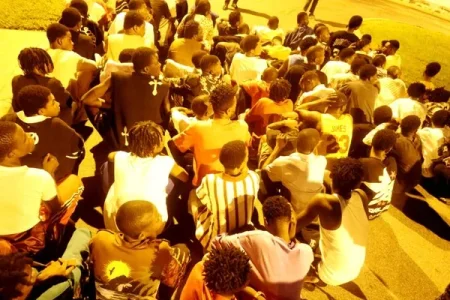
In the heart of the 82nd Division barracks, tragedy struck in the form of a love gone wrong. SaharaReporters has unearthed the grim details of a heinous crime that has sent shockwaves through the military community and beyond.
The lifeless body of a woman, identified as Hauwa and adorned in a hijab, was discovered by the daughter of an army lieutenant near the division's officers' quarters. The gruesome scene, described as a nightmare, revealed the extent of the brutality inflicted upon the victim. Stabbed multiple times, her throat slit, and her belly bearing the scars of merciless violence, Hauwa's tragic demise has left a scar on the collective conscience.
Private Mohammed Adamu, a member of the Nigerian Army's 82nd Division legal services, stands accused as the perpetrator of this senseless act. Shockingly, Adamu was not just another soldier; he was a repentant member of the dreaded Boko Haram terrorist group, purportedly reintegrated into society through the army's rehabilitation program. The revelation of his past affiliation raises troubling questions about the effectiveness of such initiatives and the screening processes in place.
As the investigation unfolds, chilling details emerge, painting a picture of a relationship tainted by jealousy and betrayal. Adamu and Hauwa, once lovers from the same town in Borno State, now find their story tainted by tragedy. The unborn child Hauwa carried, a symbol of hope and new beginnings, became a casualty of Adamu's unfathomable rage.
The military's reluctance to acknowledge the recruitment of former insurgents into its ranks adds another layer of complexity to an already convoluted narrative. Despite official denials, insiders reveal a different reality, where repentant terrorists find a path back into society, sometimes with devastating consequences.
As the news spreads, Nigerians took to social media to express their shock, anger, and frustration. Many questioned the rehabilitation programs that integrate repentant Boko Haram members into society, citing this tragedy as evidence of their failure.




